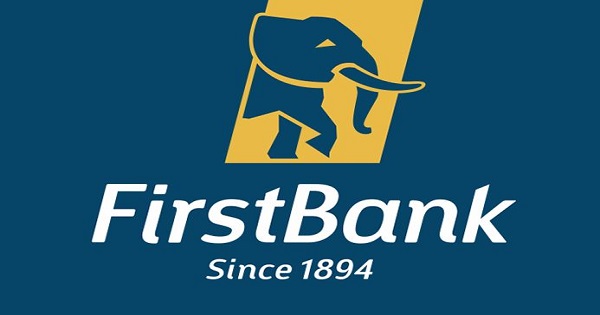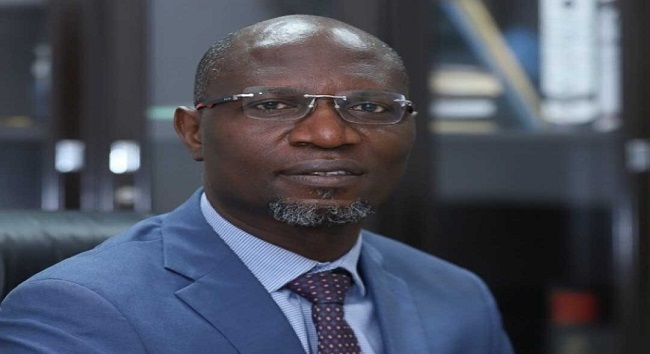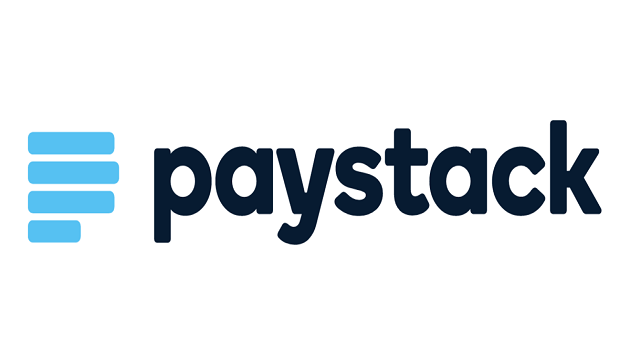E-Financial
Court Orders First Bank to Pay Olisa Agbakoba N266m for Breach of Contract

First Bank of Nigeria Limited has been ordered by a federal high court sitting in Ikoyi, Lagos, to pay one of its customers, Mr Olisa Agbakoba (SAN), a notable lawyer in the country, the sum of N266.4 million as general damages against the bank for mismanaging his share portfolio investment account.
The verdict of the court was as a result of a suit filed Mr Agbakoba against First Bank claiming sundry reliefs.
In his statement of claim filed before the court by a partner in the law firm of Agbakoba and Associates Babatunde Ogungbamila on behalf of the human rights lawyer, he alleged that as a result of bankers/customer relationship between him and the bank; sometime in 2008, the bank introduced its margin trading facility to him, which he accepted.
He said First Bank explained to him that the bank’s customers were to purchase shares with the advanced margin trading facility and pledge the shares to the bank.
The bank, for a management fee, was to professionally manage the advanced facility by selecting the broker and securities the facility would be invested into.
He said the bank would also prepare all the paper work needed, provide information about the funds’ holdings and performances and reserved the power to exit should the fund diminish to a threshold that could impair the economic underpinnings of the investment and left the bank’s exposure uncovered.
According to the customer, the bank claimed to possess the requisite knowledge, skills and expertise to seamlessly manage the investment in a win-win situation under terms and conditions that limited the exposure of the customers who were to rely on the expertise of the bank to manage the investment.
Consequently, the bank requested and encouraged him as a customer to take the margin loan contract.
On the strength assurance, the plaintiffs applied for a margin trading facility of N200 million with the plaintiff and the bank opening a joint special reserve lien account with the Central Securities Clearing System (CSCS), whereby First Bank Limited was the sole signatory to the lien account.
The plaintiff said he also provided shares worth N60 million as his own contribution in line with the margin trading facility agreement.
 Mr Olisa Agbakoba
Mr Olisa Agbakoba
It was fundamental to the margin loan agreement that if the plaintiff was unable to regularize the account within 5 days following the margin call, the bank has the duty to sell the shares and apply the value of the shares appreciate to cover the required margin.
However, the plaintiff averred that the bank did not take reasonable care to ensure the performance of the contract and observe compliance with all terms and conditions of their agreement in relation to the transaction as the bank failed to monitor the stock market and advise the plaintiff accordingly as it was obliged by the margin loan agreement, while the value of the shares continued a steady decline the plaintiff was utterly left in the dark regarding the value of the share portfolio in spite of repeated demands by the plaintiff for information from the bank.
In a particular of the fraudulent inducement, First Bank held itself out as possessing the requisite knowledge, skills and expertise to seamlessly manage the investment in a win-win situation while offering the plaintiff the product, consequently the breach of the margin trading facility agreement, fraudulent misrepresentations and mismanagement of the plaintiff’s account by the bank occasioned huge loses to the plaintiff.
The principal sum of N200 million was completely lost, the plaintiff paid a total sum of N250,434,639.13 in liquidation of the margin loan account excluding interest and other charges.
It was disclosed that the plaintiff’s 30 percent equity contribution valued at N60 million was completely lost and N40 million out of this would have been saved if the shares were sold at the second trigger point, N768,454,85 cost of cancellation of transfer of the debt to AMCON.
During hearing of the case, Mr Agbakoba testified for himself and tendered 22 exhibits.
However, in amended statement of defence filed before the court by Professor G. Elias (SAN), First Bank, while denying almost the claims of Mr Agbakoba, contended that it is not in any way liable to the plaintiff either in contract or tort as the plaintiff was aware of the volatility of the operations of the Nigerian Stock Exchange (NSE) and the speculative nature of the price of the stocks traded thereon and voluntarily assumed the business risks involved therein by applying for the loan from the bank and applying for the loan proceeds to buy shares, thereon the bank has never been the plaintiff’s investment manager.
He said the bank’s obligations were limited to the administrative of the facility itself, not the shares. The said administration involved the bank taking steps to ensure payments of the principal sum and the interest and monitoring movements on the bank’s lien account not share account by debiting and crediting relevant accounts towards repayment of the facility.
He said the bank was never a “joint venture” participant in the shares investment business undertaken by the plaintiff with the facility proceeds.
According to him, the bank’s role in the facility transaction was that of a lender and not that of a co-investor or asset manager.
Consequently, the bank denied that it acted in breach of contract or breach of any legal duty, therefore the plaintiff is not entitled to any sum as the plaintiff’s claims against the bank are vexations and without merit and should be dismissed with substantial costs.
In his judgment, Justice Muslim Hassan held that, “I am in agreement with the submission of learned counsel for the plaintiff that the bank failed to honour its contractual obligation as contained in the margin loan agreement and as a result the plaintiff suffered damages.
“The position of the defendant is akin to a situation where a party to a contract in the absence of any agreement to the contrary takes a benefit of a contract and refuses to accept liability as a result of his inaction or negligence, no court in Nigeria would allow that.
“From the foregoing, I hold that the plaintiff has proved his case against the defendant. I hereby make the following orders.
“An order is made against the bank for the payment of N20 million as general damages against the bank for mismanagement of the plaintiffs share portfolio investment.
“An order is made against First Bank for the payment of the sum of N200 million principal sum lost by the plaintiff as a result of the bank’s breach.
“An order is made against the bank for the payment of the sum of N40 million to the plaintiff which would have been saved out of the plaintiff equity contributions were the shares sold at the second trigger point.
“An order is made against the bank for the payment of the sum N768,454,85 to the plaintiff being the cost of cancellation of transfer of the debt to AMCON.
“An order is made against the defendant for the payment of the sum of N5.6 million for loss of dividend that accrued from plaintiffs Diamond Bank shares in April 2008.
“Payment of the sum of N5 million as a cost of this action is refused as the plaintiff failed to prove how he arrived at that figure, more so the plaintiff cannot transfer his legal fees to the bank.
“An order for the payment of interest on the judgment sums awarded against the bank in favour of the plaintiffs from the date of judgement at the rate of 17 percent per annum until judgment sums are paid.”
E-Financial
SEC Hikes Minimum Capital Requirements for Market Operators After a Decade

The Securities and Exchange Commission (SEC) has revised the minimum capital applicable to all categories of regulated capital market entities after 10 years.

The minimum capital review, according to the SEC, is informed by the need to strengthen market resilience, enhance investor protection, align capital adequacy with the evolving risk profile of market activities, and ensure that regulated entities possess sufficient financial capacity to discharge their obligations in a sustainable manner.
“The revised Minimum Capital framework seeks to: enhance the financial soundness and operational resilience of market operators; align capital requirements with the scope, complexity, and risk exposure of regulated activities; promote market stability and systemic risk mitigation; and support innovation and orderly development of new market segments, including digital assets and commodities markets,” SEC said in a January 16 circular to market operators.
The SEC circular was sent to all entities regulated by the Commission, including but not limited to core and non-core capital market operators; market infrastructure institutions; capital market consultants; financial technology (FinTech) operators; Virtual Asset Service Providers (VASPs); and Commodity market intermediaries.
All affected entities are required to comply with the revised Minimum Capital Requirements on or before June 30, 2027, the circular said.
“Entities that fail to meet the prescribed requirements within the stipulated timeline shall be subject to appropriate regulatory sanctions, including suspension or withdrawal of registration, as may be determined by the Commission,” SEC said.
Tier-1 Portfolio Managers (Full Scope) involved in the management of Collective Investment Schemes (CIS) and Alternative Investment Funds (Private Equity, Venture Capital, Infrastructure Funds etc) above N20 billion Net Asset Value (NAV), or discretionary and Non-Discretionary Private Portfolio Management Services above N20 billion Assets under Management (AuM), or exposure to foreign instruments up to 40 percent of the NAV are now required to have a minimum capital of N5 billion as against N150 million.
“Any Fund and Portfolio Manager with NAV/AuM of more than N100billion should have a minimum of 10 percent of the NAV/AuM as capital,” SEC added.
For the Tier-2 fund/portfolio managers (Limited Scope) who are in the business of management of Collective Investment Schemes with limited pooled fund creation of not more than 10 times the required capital (N20 billion) on Net Asset Value (NAV), or discretionary and non-discretionary private portfolio management services of not more than N20 billion, or those exposure to foreign instruments of not more than 20 percent of the NAV, now require N2 billion as minimum capital as against low of N150 million.
Likewise, broker-dealers whose services include: client execution, proprietary trading, margin/securities lending and advisory services no longer require N300 million minimum capital to operate but N2 billion.
The SEC said the minimum capital review from 2015 low is in line with its mandate under the Investments and Securities Act 2025 to regulate and develop the Nigerian capital market.
Also, Tier 1 issuing houses who do non-interest finance services, advisory & arrangement services but no underwriting now require N2 billion as against N200 million; while Tier 2 –issuing houses with underwriting and offers a ‘one-stop-shop’ for issuers, provides underwriting services, and renders advisory and product development services require N7 billion minimum capital for this business as against N200 million.
Also, the minimum capital requirement for brokers (client execution only) has been jacked up from N200 million to N600 million, while that of dealers (proprietary trading only) has been moved from N100 million to N1 billion.
Broker-Dealers’ (client execution, proprietary trading, margin/securities lending and advisory services) has been raised from N300 million to N2 billion, while Sub-Brokers’ (Digital) from N10million to N100million; Sub-Broker (Corporate) has been increased from N10million to N50 million. Also, sub-brokers’ (Individual) now need N10 million minimum capital for the business as against N2 million while inter-dealer brokers require N2 billion as against N50 million.
E-Financial
SEC Partners Police in Nationwide Crackdown on Ponzi Schemes, Crypto Frauds

Securities and Exchange Commission (SEC) and the Nigeria Police Force have forged an alliance against illegal scheme operators, investment frauds, and cryptocurrency frauds in a bid to protect the hard-earned savings and the financial dreams of the Nigerian people.

Dr Emomotimi Agama, director-general of the SEC, stated this during a meeting with Kayode Egbetokun, Inspector General of Police, held in Abuja.
Agama said the SEC, as the sentinel at the gate of Nigeria’s formal capital markets, had the mandate to protect investors, maintain fair, efficient, and transparent markets, and promote the growth of a vibrant economy built on trust, which is done by setting rules, licensing operators and market surveillance.
He, however, stated that the Commission faced adversaries who operate in the shadows, outside regulated gates by exploiting the trust of people and promising miraculous returns such as 200 per cent in 30 days.
“Currently, there is a gap, a seam between identification and enforcement that these scammers exploit. Today, we aim to close that gap permanently. Therefore, we propose a robust, institutionalised collaboration with the following pillars: Joint Intelligence and Operations Task Force: Capacity Building and Knowledge Transfer; Streamlined Processes for Enforcement and National Public Awareness Campaign,” he stated.
The SEC DG advocated, “the establishment of a dedicated SEC-NPF team that combines market intelligence, forensic accounting, and understanding of complex financial schemes with investigative and intelligence-gathering capabilities. This team will be the rapid-response unit to new frauds.”
Agama also sought the permission of the IGP to go into a Memorandum of Understanding with the Cyber Security Unit of the Police Force in a bid to ensure that cyberspace is safe for all Nigerians
In his response, the IGP Kayode Egbetokun assured the SEC team that the Nigerian police Force is ready to collaborate with the Commission, strengthen partnership in all the ways possible, and ensure that the Commission achieves its aims.
He said, “Your role in the Securities and Exchange Commission is very crucial to the Nigerian Economy, and with our supervision and support from the government, we will ensure economic recovery and growth. If the police unit in SEC is strengthened, it is going to make such an impact on your enforcement drive. What you said speaks so much to your determination to ensure effective drive in the Capital market, and when we can achieve effective enforcement, it comes with so many benefits.
Egbetokun also congratulated the Commission on the recent achievement of the N100 trillion market capitalisation mark, adding that it will aid economic growth and development.
E-Financial
Paystack Expands Beyond Payments into Banking

Nigerian fintech giant, Paystack has taken its boldest step yet beyond payments, acquiring Ladder Microfinance Bank. The fintech giant has quickly rebranded its new acquisition as Paystack Microfinance Bank (MFB) in a strategic shift that could reshape how African businesses access credit, deposits, and embedded financial services.

After nearly a decade building the backbone of online payments in Nigeria, the deal gives Paystack regulatory cover to hold deposits, lend directly to businesses and offer banking-as-a-service products.
More importantly, Paystack’s chief operating officer, Amandine Lobelle, highlighted that it allows the company to exert greater control over the trillions of naira that already flow through its platform every month, turning transaction data into a powerful engine for credit and treasury products.
“After 10 years of building payment infrastructure and going deep, we realised that businesses needed more than just getting paid to grow. We wanted to leverage the expertise that we have built over the last decade to continue to address some of the pain points that businesses have,” said Lobelle.
Paystack MFB will operate as a sister company to its payments business, initially focusing on working capital loans, merchant cash advances, overdrafts and term loans for small and medium-sized enterprises.
By using real-time payment data to underwrite loans, Paystack believes it can offer faster approvals and more accurate risk pricing than traditional lenders, directly tackling Nigeria’s estimated $32 billion small business financing gap.
For Paystack, founded in 2016 and acquired by Stripe in 2020, the move marks a strategic evolution from being just a payments processor to becoming a core part of the financial operating system for African businesses.
Today, Paystack supports more than 300,000 businesses across Nigeria, Ghana, and South Africa and has become one of Africa’s most trusted fintech infrastructure providers.
The banking licence is a game-changer as payments, once Paystack’s main growth engine, are increasingly commoditised across Africa. Lending, deposits and treasury services offer deeper margins, stickier relationships and long-term sustainability.
By layering banking services on top of payments, Paystack is betting that infrastructure depth will outperform flashy consumer scale.
However, the move also throws the Nigerian-born fintech giant into fierce competition with digital -first lenders and neobanks such as Moniepoint, Kuda, OPay and PalmPay, which already operate at massive scale. Still, Paystack’s strength lies in its merchant-first focus and developer-friendly APIs.

 E-Financial2 days ago
E-Financial2 days agoPaystack Expands Beyond Payments into Banking

 E-Financial2 days ago
E-Financial2 days agoSEC Partners Police in Nationwide Crackdown on Ponzi Schemes, Crypto Frauds

 E-Business2 days ago
E-Business2 days agoNigeria Targeted with 4,622 Cyber-attacks Per Week in December 2025

 General News2 days ago
General News2 days agoEFCC to Use Space Technology to Boost Asset Tracking, Investigations

 E-Financial2 days ago
E-Financial2 days agoFG Halts Tax Guidelines Amid Uncertainty Over Final Laws – Oyedele

 E-Financial2 days ago
E-Financial2 days agoPaystack Buys Microfinance Bank, Enters Nigeria Banking Arena

 News2 days ago
News2 days agoFG Directs Banks, Fintechs to Remit VAT on Service Fees

 General News2 days ago
General News2 days agoHow to Stay Safe Online During Sales Periods






















